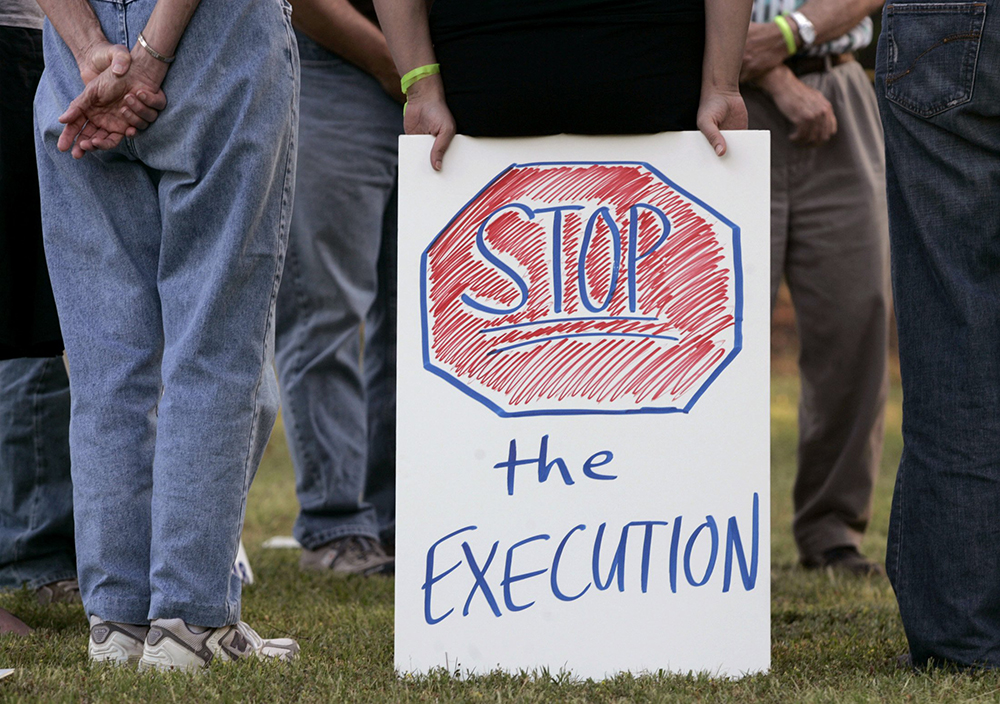
WINDSOR TERRACE — Gov. Ralph Northam of Virginia signed a bill on Wednesday, March 24, that officially ended the death penalty in Virginia. Twenty-two states have banned the death penalty before, but Virginia becomes the first one in the South to abolish capital punishment.
“It is the moral thing to do to end the death penalty in the Commonwealth of Virginia,” said the governor.
Bishop Michael Burbidge of Arlington and Bishop Barry Knestout of Richmond issued a statement shortly after the bill was signed into law saying, “we embrace this hope-filled new beginning.”
The bishops pointed out that Virginia has a “disturbing and tragic history of executions — carried our more frequently here than in any other state in our country history.”
Since its foundation as an English colony 412 years ago, Virginia has put to death almost 1,400 people. According to the Death Penalty Information Center, since the Supreme Court reinstated the death penalty in 1976, they have carried out 113 executions, second only to Texas.
“Through our Virginia Catholic Conference,” the bishops said, “we supported this historic legislation as it progressed through the General Assembly because all human life is sacred. We are grateful to those who worked to make this a reality.”
Gov. Northam, a Democrat, signed the bill at the Greensville Correctional Center near Jarratt, Va., the site of the state’s execution chamber. Virginia’s Democratic-controlled legislature had passed the measure late last month.
“The death penalty is the direct descendant of lynching. It is state-sponsored racism, and we have an opportunity to end this today,” said Democratic Del. Jay Jones on that occasion. Two Republicans voted with Democrats in favor of abolition, while the Republican Party at large and some law enforcement organizations opposed the new law.
Archbishop Paul S. Coakley of Oklahoma City, chairman of the U.S. Conference of Catholic Bishops’ Committee on Domestic Justice and Human Development, also issued a statement after the signing ceremony.
“I welcome Virginia’s repeal of the death penalty as a bold step towards a culture of life. Virginia will become the twenty-third state to abolish the death penalty,” Archbishop Coakley said, “and I urge all other states and the federal government to do the same.”
U.S. Bishop Chairman Welcomes Repeal of Death Penalty in Virginia: https://t.co/bSKLzWNzo4 pic.twitter.com/d6iiAr9VSJ
— U.S. Conference of Catholic Bishops (@USCCB) March 24, 2021
“Congratulations are in order for the Virginia bishops, the Virginia Catholic Conference, the Catholic Mobilizing Network, and all other advocates who worked very hard to achieve this historic result,” he added.
Historically, the Catholic Church has opposed the use of capital punishment while accepting that, in some cases, it was acceptable. However, Pope Francis introduced changes in the Catechism of the Catholic Church in August 2018.
“Recourse to the death penalty on the part of legitimate authority, following a fair trial, was long considered an appropriate response to the gravity of certain crimes and an acceptable, albeit extreme, means of safeguarding the common good,” the new version of the Catechism says before explaining that those considerations were no longer valid.
“The Church teaches, in the light of the Gospel, that the death penalty is inadmissible because it is an attack on the inviolability and dignity of the person and she works with determination for its abolition worldwide,” the new Catechism text concludes.
